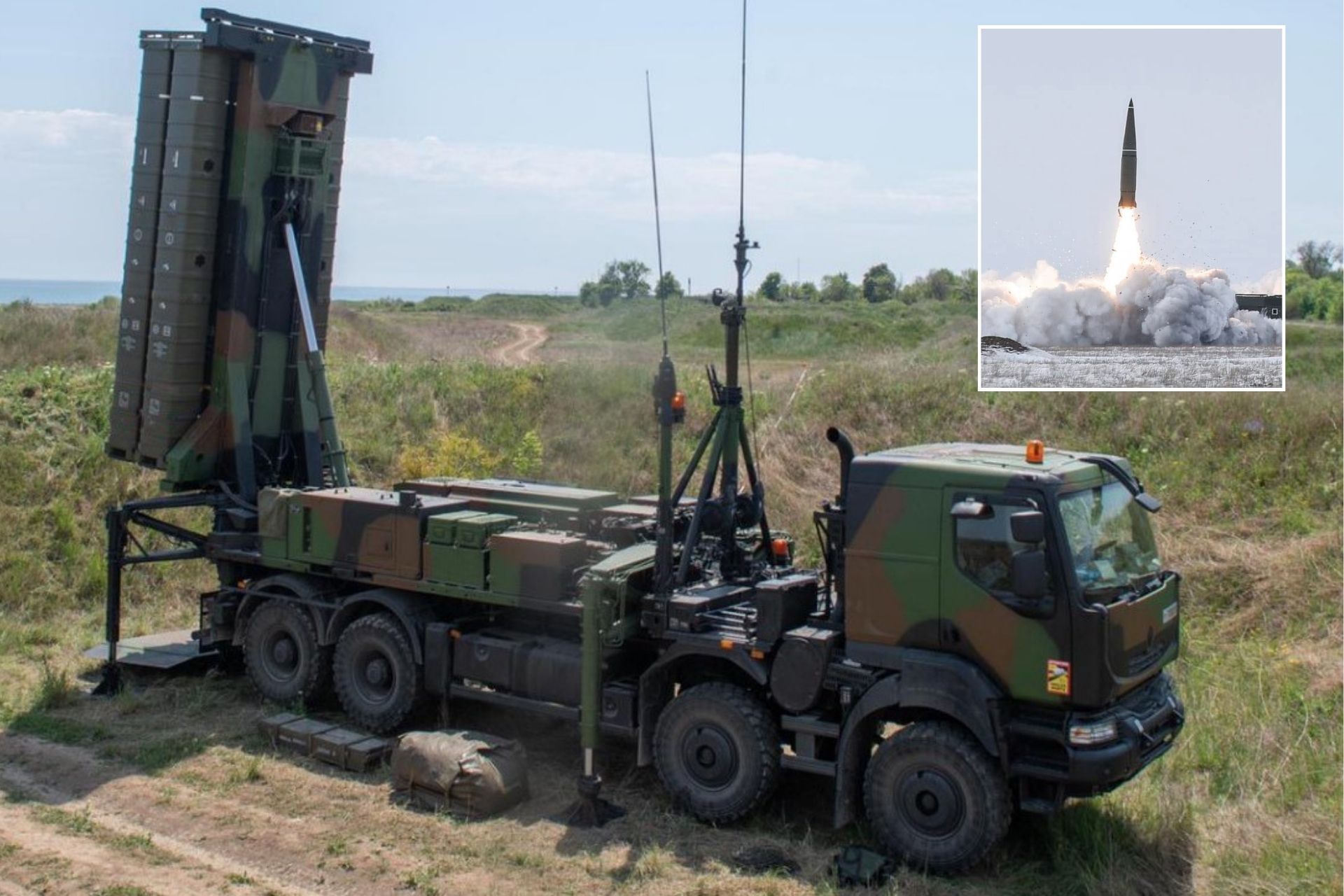Breaking News
Poland Considers Intercepting Russian Missiles Over Ukrainian Airspace.
Poland is assessing a proposal from Ukraine that would allow Polish forces to intercept Russian missiles over Ukrainian territory before they could potentially enter Polish airspace. This initiative was discussed during President Volodymyr Zelensky's recent visit to Warsaw, where a joint defense agreement was signed between the two nations.
Follow Army Recognition on Google News at this link

The SAMP/T system offered by France and Italy to Ukraine (left) and the Russian Iskander ballistic missile (right) (Picture source: French MoD/ Russian MoD)
Polish Foreign Minister Radoslaw Sikorski elaborated on the proposal during a conference at the American Enterprise Institute in Washington, describing it as an initial idea under review. He emphasized the geographical challenges posed by Russian missiles launched from the St. Petersburg region towards targets near Lviv in Ukraine, which briefly traverse Polish airspace. Due to the short duration—approximately 40 seconds—that these missiles spend in Polish skies, Poland has limited response time, thus necessitating preemptive measures in Ukrainian airspace.
Since the onset of the conflict between Russia and Ukraine in February 2022, Russian forces have conducted numerous missile strikes on Ukrainian territory. Primarily using cruise and ballistic missiles such as the Kalibr, Kh-101, and Iskander, these attacks target critical infrastructure, residential areas, and military facilities, causing massive destruction and civilian casualties. The primarily targeted areas include major cities like Kyiv, Kharkiv, and Mariupol. Russia possesses a substantial arsenal and the production capacity to sustain this pace of attacks, raising concerns about the sustainability of the offensive over the long term.
Ukraine, despite growing international support, faces significant challenges in defending its airspace against these relentless assaults. Modern air defense systems such as the Patriot anti-missile systems provided by the United States and the SAMP/T system offered by France and Italy have been deployed, yet they remain insufficient against the volume and sophistication of Russian missiles.
Ukrainian air defense systems, although enhanced, are often overwhelmed by the Russian forces' saturation capabilities, which employ salvo launch tactics to exhaust Ukrainian defenses. Mr. Sikorski also referenced an incident in December 2022, where an unarmed Russian missile landed near his home in Bydgoszcz, 500 kilometers from the Belarusian border, fortunately without causing injuries. This incident underscored the potential dangers of missile debris, a concern amplified by a previous event where two Polish citizens were killed by debris from a missile that Ukraine downed near their border.
Polish Defense Minister Wladyslaw Kosiniak-Kamysz, speaking at a NATO summit in Washington DC, stated that any decision to engage missiles over Ukraine would require extensive consultations with NATO allies and would not be made unilaterally by Poland alone. He emphasized the importance of aligning with the United States, which has expressed reservations about the strategy.
Defense analyst Marek Swierczynski from Polityka Insight warned that without substantial allied support, this strategy could expose Poland to significant risks, including potential Russian retaliation. Poland has been a steadfast supporter of Ukraine since the beginning of the Russian invasion in February 2022, providing substantial military aid, including tanks, fighter jets, helicopters, artillery, and air defense systems valued at over 4 billion euros. The country plans to continue its support with additional military assistance this year.
This situation not only exposes weaknesses in Ukraine's air defense but also underscores the urgent need for further reinforcements in this area. The international community, aware of these challenges, continues to discuss increasing military aid, particularly in terms of more advanced defense systems and electronic warfare technologies to counter Russian missile guidance capabilities. The effectiveness of the international response will be crucial for enabling Ukraine to better protect its citizens and vital infrastructure against future strikes.


























